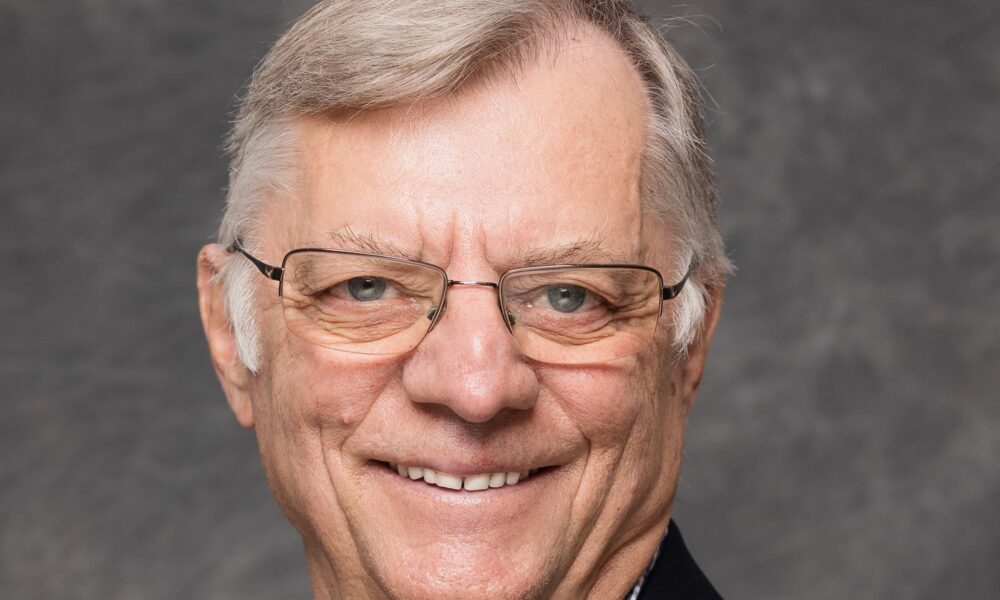Charles Lombardo has a knack for making the right decisions.
One of three new members of the American Gaming Association’s Hall of Fame, his good fortune started when he joined the Air Force in the 1970s instead of waiting to be drafted, which led to being stationed in Las Vegas.
Another fortunate decision saw him turn down a chance for a government position once he left the Air Force in favor of taking a job with a company that sold coin wrapping machines.
And when Seminole Gaming CEO and Hard Rock International Chairman Jim Allen asked him to help bolster Class II gaming, Lombardo spurned offers from operators in Las Vegas to move to Florida.
“People have said to me, every once in a while, you belong in the Gaming Hall of Fame,” Lombardo said during an interview with CDC Gaming. “I always said that’s for casino owners, CEOs and politicians, and some entertainers. It doesn’t come down to guys like me. We’re just the guys that follow the instructions and do the best we can.”
Lombardo will be inducted into the AGA Hall of Fame, with David Berman, McQuarie Capital, Americas Co-Head and Global Head of Consumer, Gaming & Leisure Investment Banking; and Ann Simmons Nicholson, President of the Simmons Group, October during the Global Gaming Expo in Las Vegas.
“On behalf of the entire Hard Rock and Seminole Gaming team, I extend my heartfelt congratulations to Charles Lombardo on his induction into the 2025 AGA Gaming Hall of Fame,” Allen says. “Charles Lombardo’s leadership and vision have helped shape the gaming industry we know today, and we’re proud to celebrate his well-earned place in the industry.”
Growing up in Buffalo, New York, a career in the gaming industry seemed unlikely. But Lombardo’s decision to enlist in the Air Force paid dividends when he was stationed at Nellis Air Force Base near Las Vegas. Instead of re-enlisting, he found work at a company that supplied wrapped coins for loose coins to casinos. It was there he was introduced to the movers and shakers of Las Vegas
“During that period, I met everybody of influence in the casino business,” Lombardo says. “Everybody came by to see if they wanted to use the service, and almost every casino did by the way. I met every slot manager, every table game manager, because back then in the early ‘70s, the count room reported to the casino people and not to the finance people.”
After a year, Lombardo’s employer went out of business. He had numerous job offers but went to work for MGM. Again, the contacts he’d made proved invaluable, including people who had been in Vegas since its inception as a gambling mecca.
“They were some of the original guys (in Vegas) and everybody was interested in was talking about their jobs and their business and how things work, especially the slot guys,” Lombardo says, adding he learned about the inner works of slots from the layout of symbols to the arrangement of gaming floors.
Lombardo started working for MGM, and as fate would have it, was in the casino the morning of the infamous fire on November 19, 1980. As luck would have it, he says, his boss had just quit.
“There was an opening, and I was the newest guy there,” Lombardo days. “I was able to impress everyone enough that I got that opening. You’ve got to have those breaks, People have to leave, people have to change, people have to go, people have to do. Companies have to change.”
Lombardo’s career arc was quick and steady. He progressed steadily through the ranks from Slot Manager to Director to Vice President to Senior Vice President, working for Bally’s, Caesars Palace, and Paris Las Vegas.
He considered himself to be semi-retired when Allen called and asked him to help start a few Class II casinos. Lombardo had no interest in going to Florida, but Allen convinced him it was a gamble worth taking, despite advice from his peers in Las Vegas.
“Everybody I did business with in Las Vegas said, ‘just so you know, where you’re going and what you’re doing is taboo,’ ” Lombardo says. “Don’t come to us. We can’t help. We can’t be part of that. If we try, we’re going to put our licensing in jeopardy.”
Lombardo accepted Allen’s offer because he realized it was an opportunity to make an effect on the gaming industry. Through his efforts – Lombardo worked with the National Indian Gaming Commission and a few regulators – his model became the blueprint for Class II gaming, and opened the door for Class III gaming in California, Florida, and Oklahoma.
Not bad for a guy who still credits his parents, Tom and Josephine Lombardo, for his work ethic, and to the Air Force for enhancing those lessons. Every Saturday, Lombardo would go to work with his father. And his mother told him every day to respect everyone he met, especially women.
“I think it started there,” Lombardo says of his parents’ guidance. “Then when I got to the service, it really gives you a sense of responsibility and belonging that I don’t think you get anywhere else.”




